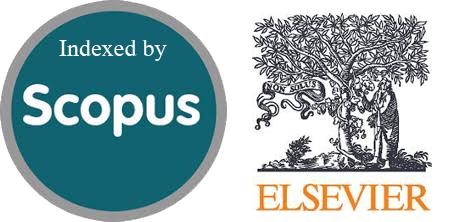Perceptions of Senior Pharmacy Students Towards the Impact of Artificial Intelligence on University Education and Scientific Writing: A Qualitative Study
DOI:
https://doi.org/10.54133/ajms.v6i1.538Keywords:
Artificial intelligence, Academic purposes, ChatGPT, Iraq, Pharmacy studentsAbstract
Background: The roles of AI in the academic community continue to grow, especially in the enhancement of learning outcomes and the improvement of writing quality and efficiency. Objectives: To explore in depth the experience of senior pharmacy students in using artificial intelligence for academic purposes. Methods: This qualitative study included face-to-face individual interviews with senior pharmacy students from March to May 2023 using a pre-planned interview guide of open-ended questions. All interviews were audio-recorded. Thematic analysis was used to analyze the data. Results: The results were obtained from 15 in-depth face-to-face interviews with senior pharmacy students (5th and 4th years). Eight participants were male, and seven were female (21–25 years old). All participants used ChatGPT for a few months for academic purposes, especially when writing take-home assignments. The perceptions were positive about the students’ gains from using ChatGPT. Still, at the same time, they admitted that AI might negatively impact the student’s motivation to learn new academic skills. Conclusions: The students believed that AI was very helpful, with concerns that it did not enhance their critical thinking or writing skills. Thus, educators need to change their strategies for teaching and testing students to improve student skills and identify students’ own work.
Downloads
References
Almaraz-López C, Almaraz-Menéndez F, López-Esteban C. Comparative study of the attitudes and perceptions of university students in business administration and management and in education toward artificial intelligence. Edu Sci. 2023;13(6):609. doi: 10.3390/educsci13060609. DOI: https://doi.org/10.3390/educsci13060609
Salvagno M, Taccone FS, Gerli AG. Can artificial intelligence help for scientific writing? Criti care. 2023;27(1):75. doi:10.1186/s13054-023-04380-2. DOI: https://doi.org/10.1186/s13054-023-04380-2
Abd-Elsalam KA, Abdel-Momen SMJEJoAR. Artificial Intelligence's Development and Challenges in Scientific Writing. Egypt J Agric Res. 2023;101(3):714-717. doi: 10.21608/ejar.2023.220363.1414. DOI: https://doi.org/10.21608/ejar.2023.220363.1414
Khabib S. Introducing artificial intelligence (AI)-based digital writing assistants for teachers in writing scientific articles. Teach Eng For Lang J. 2022;1(2):114-124. doi: 10.12928/tefl.v1i2.249. DOI: https://doi.org/10.12928/tefl.v1i2.249
Luan H, Geczy P, Lai H, Gobert J, Yang SJ, Ogata H, et al. Challenges and future directions of big data and artificial intelligence in education. Front Pschycol. 2020;11:580820. doi: 10.3389/fpsyg.2020.580820. DOI: https://doi.org/10.3389/fpsyg.2020.580820
Amisha, Malik P, Pathania M, Rathaur VK. Overview of artificial intelligence in medicine. J Fam Med Prim Care. 2019;8(7):2328-2331. doi: 10.4103/jfmpc.jfmpc_440_19. DOI: https://doi.org/10.4103/jfmpc.jfmpc_440_19
Mikhael EM, Al-Hamadani FY, Hadi AM. Design and evaluation of a new mobile application to improve the management of minor ailments: a pilot study. BMC Health Serv Res. 2022;22(1):920. doi: 10.1186/s12913-022-08292-9. DOI: https://doi.org/10.1186/s12913-022-08292-9
Lee P, Bubeck S, Petro J. Benefits, limits, and risks of GPT-4 as an AI Chatbot for medicine. New Eng J Med. 2023;388(13):1233-1239. doi: 10.1056/nejmc2305286. DOI: https://doi.org/10.1056/NEJMsr2214184
Buabbas AJ, Miskin B, Alnaqi AA, Ayed AK, Shehab AA, Syed-Abdul S, et al. Investigating students' perceptions towards artificial intelligence in medical education. Healthcare (Basel, Switzerland). 2023;11(9) doi: 10.21203/rs.3.rs-1805527/v1. DOI: https://doi.org/10.3390/healthcare11091298
Sumakul DT, Hamied FA, Sukyadi D. Students’ perceptions of the use of AI in a writing class.
Adv Soc Sci Edu Hum Res. 2022;624:52-57. doi: 10.2991/assehr.k.220201.009. DOI: https://doi.org/10.2991/assehr.k.220201.009
Mikhael EM, Mohammed SI. After introducing artificial intelligence, can pharmacists still find a job? Al-Rafidain J Med Sci. 2023;5(Suppl 1). doi: 10.54133/ajms.v5i1s.336. DOI: https://doi.org/10.54133/ajms.v5i1S.336
Castellanos-Gomez AJN. Good practices for scientific article writing with ChatGPT and other artificial intelligence language models. Nanomanufact. 2023:3(2):135-138. doi: 10.3390/nanomanufacturing3020009. DOI: https://doi.org/10.3390/nanomanufacturing3020009
Al-Jumaili AA, Ahmed KK, Al-Jalehawi AK, Al-Fatlawi BG, Al-Rekabi MD, Al-Sawad OS, et al. Evaluating the use of informational technologies by students of healthcare colleges for academic purposes over a five-year period. Edu Info Tech. 2021. doi: 10.1007/s10639-021-10533-z. DOI: https://doi.org/10.1007/s10639-021-10533-z
Al-Jumaili AA, Al-Rekabi MD, Alsawad OS, Allela OQB, Carnahan R, Saaed H, et al. Exploring electronic communication modes between Iraqi faculty and students of pharmacy schools using the technology acceptance model. Am J Pharm Edu. 2017;81(5):89. doi: 10.5688/ajpe81589. DOI: https://doi.org/10.5688/ajpe81589
Ahmed K, Salman S, Abbas WA, Alkaisy S, Kathem S. Sudden transition of pharmacy education from traditional to distance learning in the era of COVID-19: Action steps of a leading pharmacy school in Iraq. Iraqi J Pharm Sci. 2020;29:271-278. doi: 10.31351/vol29iss2pp271-278. DOI: https://doi.org/10.31351/vol29iss2pp271-278
Ahmed KK, Al-Jumaili AA, Salman SS, Kathem SH. The students' experience of hybrid-education model at the university of Baghdad college of pharmacy: Lessons and future directions. Iraqi J Pharm Sci. 2021;30(2):269-277. doi: 10.31351/vol30iss2pp269-277. DOI: https://doi.org/10.31351/vol30iss2pp269-277
Mohammed S, Alhilali D, Mubder N. Perception, benefits, and factors affecting the quality of hospital training course for pharmacy students: A qualitative study with recently graduated pharmacy students. Open Access Maced J Med Sci. 2022;10:1801-1806. doi: 10.3889/oamjms.2022.10819. DOI: https://doi.org/10.3889/oamjms.2022.10819
Al-Jumaili AA, Hussain SA, Sorofman B. Pharmacy in Iraq: history, current status, and future directions. Am J Health Syst Pharm. 2013;70(4):368-372. doi: 10.2146/ajhp120415. DOI: https://doi.org/10.2146/ajhp120415
Braun V, Clarke V. Using thematic analysis in psychology. Qual Res Psycho. 2006;3(2):77-101. doi: 10.1191/1478088706qp063oa. DOI: https://doi.org/10.1191/1478088706qp063oa
Creswell JW, Plano Clark VL, (Eds.), Designing and Conducting Mixed Methods Research, (2nd Ed.) USA: SAGE; 2011. 301 p. doi: 10.3316/qrj0702090. DOI: https://doi.org/10.3316/QRJ0702090
Kaur A, Singh S, Chandan JS, Robbins T, Patel V. Qualitative exploration of digital Chatbot use in medical education: A pilot study. Digit Health. 2021;7:20552076211038151. doi: 10.1177/20552076211038151. DOI: https://doi.org/10.1177/20552076211038151
Stathakarou N, Nifakos S, Karlgren K, Konstantinidis ST, Bamidis PD, Pattichis CS, et al. Students' perceptions on Chatbots' potential and design characteristics in healthcare Education. Stud Health Tech Info. 2020;272:209-212. doi: 10.22492/ije.11.2.01. DOI: https://doi.org/10.22492/ije.11.2.01
Shidiq M. The use of artificial intelligence-based chat-gpt and its challenges for the world of education; from the viewpoint of the development of creative writing skills. Proc Int Conference Edu Soc Hum. 2023;1(1): 353-357.
Ibrahim H, Asim R, Zaffar F, Rahwan T, Zaki Y. Rethinking homework in the age of artificial intelligence. IEEE Intell Sys. 2023;38(2):24-27. doi: 10.1109/mis.2023.3255599. DOI: https://doi.org/10.1109/MIS.2023.3255599
Chang CY, Hwang GJ, Gau ML. Promoting students' learning achievement and self‐efficacy: A mobile chatbot approach for nursing training. Br J Edu Tech. 2021;53:171-188. doi: 10.1111/bjet.13158. DOI: https://doi.org/10.1111/bjet.13158
Mohammad B, Supti T, Alzubaidi M, Shah H, Alam T, Shah Z, et al. The pros and cons of using ChatGPT in medical education: A scoping review. Stud Health Tech Info. 2023;305:644-647. doi: 10.3233/shti230580. DOI: https://doi.org/10.3233/SHTI230580
Essel HB, Vlachopoulos D, Tachie-Menson A, Johnson EE, Baah PK. The impact of a virtual teaching assistant (chatbot) on students' learning in Ghanaian higher education. Intern J Edu Tech High Edu. 2022;19(1):57. doi: 10.1186/s41239-022-00362-6. DOI: https://doi.org/10.1186/s41239-022-00362-6
Castonguay A, Farthing P, Davies S, Vogelsang L, Kleib M, Risling T, et al. Revolutionizing nursing education through AI integration: A reflection on the disruptive impact of ChatGPT. Nurse Edu Today. 2023;129:105916. doi: 10.1016/j.nedt.2023.105916. DOI: https://doi.org/10.1016/j.nedt.2023.105916
Mohammed SI, Hussain AH, Hussain HA. The PharmD students’ beliefs, perceptions, and challenges regarding their first year in the PharmD program: A qualitative study. Al-Rafidain J Med Sci. 2023;4:102-108. doi: 10.54133/ajms.v4i.124. DOI: https://doi.org/10.54133/ajms.v4i.124

Downloads
Published
How to Cite
Issue
Section
License
Copyright (c) 2024 Al-Rafidain Journal of Medical Sciences ( ISSN 2789-3219 )

This work is licensed under a Creative Commons Attribution-NonCommercial-ShareAlike 4.0 International License.
Published by Al-Rafidain University College. This is an open access journal issued under the CC BY-NC-SA 4.0 license (https://creativecommons.org/licenses/by-nc-sa/4.0/).











